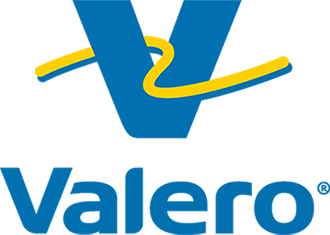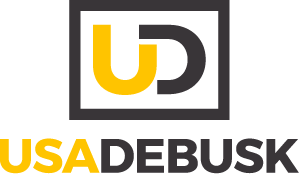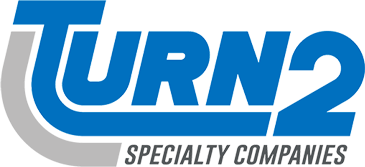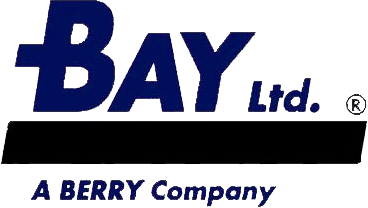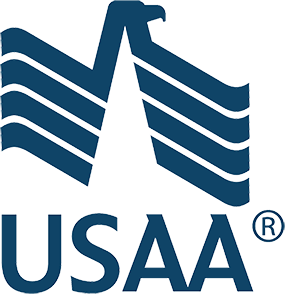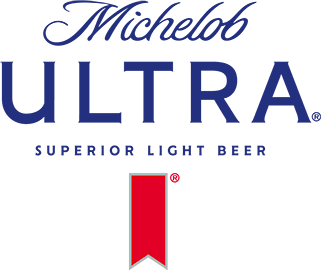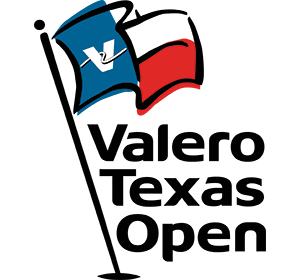Media Center Interviews
March 30, 2021
Pre-Tournament Interview with Corey Conners
DOUG MILNE: Like to welcome Corey Conners, 2019 and still defending champion of the Valero Texas Open.
Corey, thanks for joining us for a few minutes. A few quick questions from me and then I'll turn it over to some people that have questions.
One of the things that I've just got to ask, when I checked into the hotel yesterday, I think it's -- you know where I'm going with this -- fascinating seeing your face on every room card in this entire hotel. Did you get a little bit of a chuckle out of seeing that when you arrived?
COREY CONNERS: Yeah, definitely. Definitely an unusual thing that you don't typically see. Definitely had a chuckle. I got a picture message from Adam Long, a good friend of mine. He checked in before me and he gave me the heads-up of the room key.
I said something to the receptionist or the lady that was checking me in. Of course she had no idea who I was, but I made a funny comment about it being embarrassing for the guy who's got to look at himself on the room key every day for the whole week. I obviously had my mask on and a hat and I think a sweatshirt, so she probably didn't put two and two together.
But it's pretty cool, a nice touch. Happy it's me on there and hopefully can be on there again next year.
DOUG MILNE: Absolutely. Well, I would like to take you back to 2019, the final round. You began the final round a stroke back, but then put up a 6-under 66 that included 10 birdies. Just some thoughts back to that final round and how special that was for you.
COREY CONNERS: Yeah, it's been great being back here the last few days, being out on the golf course and reminiscing on all the good shots that I hit, good putts that I holed.
It was an up-and-down day, for sure. I got off to a great start, made four birdies in the first five holes and followed that up with four straight bogeys. Not as good of a memory, but ultimately battled that back and made six birdies on the back nine to cap off a good day. It was a lot of fun. Like I said, got to play the back nine yesterday and was reminiscing on all the shots I hit, all the putts where I was on the green, just kind of hit the putts again. Remember every shot really vividly. So it's been really cool to be back and to kind of remember that good stuff and definitely have a lot of positive thoughts, positive energy out there going my way. So I'm excited to get back here ultimately two years later, but yeah, still got great memories. It was a pretty amazing final round, a round that I'll remember for the rest of my life.
DOUG MILNE: One last question from me, then we'll open it up to others. You became the first Monday qualifier in almost 10 years to have won last year. What was your mindset coming into the week? For lack of better wording, did you give yourself a realistic chance of winning, kind of having come out of the Monday qualifying?
COREY CONNERS: Anytime you Monday qualify, you've done -- played some remarkable golf. Those events are not easy to get through, so I had a lot of confidence in my game. I had an aggressive mindset playing the Monday qualifier and I really focused on transferring that mindset into the tournament. I knew I was playing great. Starting the week, you know, I wasn't -- wouldn't have pegged myself as the eventual champion probably, but I knew I was playing well and I knew I could give myself a chance at a good finish.
At that point in the season, I had had a couple really good finishes before that, you know, put me in a good spot on the FedExCup. So there wasn't necessarily pressure on me to perform well after Monday qualifying in like a number of the people who typically Monday qualify who don't necessarily have status on Tour. I was already in a great spot on the FedExCup list. I had a second and a third place finish already in that 2018-2019 season, so I didn't really feel much pressure to perform, but I had a lot of confidence in my game, just trusted it and ultimately that propelled me to some good golf.
DOUG MILNE: Okay. With that, we'll take a few questions.
Q. Corey, a couple things for you. It seems like going back to the fall, I want to say probably around Sherwood, Shadow Creek time, you've been playing some really good, consistent golf, I think top-50 for the first time. How did you play last week? It's so hard to gauge how you're playing.
COREY CONNERS: Honestly, I felt like I played really well. I saw a stat when I was putting my shoes on in the locker room on Friday that the two guys I played, Matt Wolff and Matt Fitzpatrick, on Wednesday and Thursday in the first two rounds, they were both No. 1 in the field on strokes gained approach to the green, which puts a lot of pressure on your opponent when you're hitting the ball close to the hole.
So I felt like I played really well, I just had very little chance to win those matches. So that was disappointing to lose, but took some positives from it. I really played quite solid, especially the first couple days. You know, really got pounded. It can happen in the match play, that format.
I'm sure I've been on the opposite side of that a few times, whether playing at home or other matches, in amateur golf, at the U.S. Ams, where just didn't give the other guy a chance to win any holes. You know, felt like I didn't perform as poorly as the 0-3 record, which is not that great. Felt like my game was still pretty solid. Did a lot of things well.
Q. And the other thing I wanted to ask, we talk amongst ourselves, I think, in the press about how weird it is to have just been at Augusta five months ago and it made me wonder if you guys think along those same lines or is it just like normal -- well, nothing's been normal for you for the Masters, but does it just feel like normal?
COREY CONNERS: Yeah, it does feel like we just played there not that long ago, but on the other hand, on the other side of that, we have played a number of events since then. This is kind of the typical ramp-up to the Masters, the Florida Swing and obviously here in Texas this week. It feels more normal, I guess, now. When I finished up in November and had earned my spot back for the upcoming April Masters, I was really excited, like man, it's going to come up really quickly and I can take a lot of positives from it, which I certainly can. But I would say there's been a lot of golf played in the last five months. Still really excited, as excited as ever to get there. Yeah, it will be fun.
Q. Are you bringing anyone with you and did you last time?
COREY CONNERS: Sorry, to Augusta?
Q. Yeah.
COREY CONNERS: My wife will be there with me. I don't think my family's going to be able to come this year because of the Canadian border restrictions, but my wife will be out there. Hopefully, have a few other friends who are able to come and watch.
Q. Corey, kind of bouncing a little off your Monday qualifier thing. You've also been an alternate before getting into fields and having a decent week. What's the mindset as an alternate in terms of how stressful those days are leading up to that first round on Thursday and is there kind of a number you would have to be at to even make the trip, so to speak, whether you're three, four, whatever the number is?
COREY CONNERS: Yeah, the Tour does a pretty good job of keeping guys in the loop who are in that position. Like you said, I've been in that position before, so you kind of know if they're maybe expecting a couple withdrawals or if the people ahead of you are planning to go to the site.
Fortunately, I think in all my experiences of being an alternate, I've got into the field on like the Monday of tournament week so I haven't had to ever sweat it out hanging around Thursday hoping someone pulls out. I've always gotten into the field in those situations, which is fortunate, I guess.
But it's definitely not a position you want to be in. I'm pretty happy now being in a better spot. Having better status, that hasn't been the case over the last couple years, but it's definitely a stressful position to be in. I know a lot of my friends have been in that position, kind of waiting around to see if someone pulls out.
Q. It's a little bit of a strange -- I mean, a lot of golfers root for each other. It's weird in a way you're almost rooting for some bad news from somebody else to get into the field, right?
COREY CONNERS: Yeah. I mean, in a way, you are. It's definitely -- once you get into the field, it's definitely a huge relief, that's for sure. You're excited about the opportunity to play, but yeah, you don't really want to wish bad things to happen to people. But in that situation, in the back of your mind, you're kind of hoping that something happens that helps you get in the field because it's a big deal every week to be able to tee it up. When you're in that position, ultimately getting in the field is a big deal.
Q. Was Valspar, was that probably your best go as an alternate?
COREY CONNERS: Yeah, it was. In that situation, I actually got in the field Monday afternoon, so that was definitely a relief to get in there. I played the Monday qualifier and didn't play well and I was walking to my car, putting my clubs in the trunk and they called me and said that I was in the field. So that was a great feeling. I was able to get over to Innisbrook and prepare well and got off to a great start. I didn't have a great Sunday there, but was leading after the first, second and third rounds.
I think it's great when you get in the field, the mindset you have, you're trying to take advantage of an opportunity. Playing with house money in a way, it's kind of a bonus to get in the field. Yeah, that's probably my closest situation. But like I said, I ended up getting in on Monday, which still gave me time to prepare and I didn't have to sweat it out too much.
Q. Corey, I wanted to ask a little bit about the Masters and your first experiences, kind of emotionally what it was like and comparing the course to (inaudible)?
COREY CONNERS: I missed the second part of that question.
Q. Yeah, okay. Comparing the two times you played there.
COREY CONNERS: Yeah. So the first time, the emotions are you're filled with excitement, dream come true to be teeing it up in the Masters. I was fortunate to get to play as an amateur. Every step you take around the property, it just feels magical. Was definitely a little overwhelmed, but had so much fun and it was really motivating to try and get back there. I think I learned a lot in that first experience. I kind of got off to a poor start on Thursday, played well on Friday, so that gave me confidence that if I ever get back, I could be successful playing the golf course.
Definitely a little more nerves than most weeks for me. Being an amateur, like I said, I was thrown into the best tournament in the world, so you're walking around with people that you look up to and some of the best golfers in the world.
I was definitely a little more relaxed the last couple times I've played. I knew what to expect a little bit more with the setup and how I was going to feel on the golf course. Continuing to get more comfortable, I learned a lot over the last two attempts as a pro and performed pretty well in November.
So I'm really excited to get back. I feel like I have a great plan for the golf course and feel like my game sets up pretty well. Work the ball right to left off the tee, I think a lot of the holes fit my eye with that shot shape. Then typically being a strong iron player, that's the important part of success there. And then putting as well, I became more comfortable on the greens and switched to a new putting style the end of last summer and been working really hard on that and starting to build a lot of confidence with it and a lot more consistency.
Q. And then you're unusual in some respects that you have an opportunity likely to possibly play in the Olympics this summer. Have you thought about that a little bit?
COREY CONNERS: Yeah, I've definitely thought about it. It's definitely a goal of mine to earn a spot on that team. I think it would be an incredible experience and something that has been on my radar for the last few years, really since golf was announced that it was going to be in the Olympics, I guess, five years ago now. It's definitely been a goal of mine, something that I've thought about.
But I know how I'm going to make that team is continuing to play good golf. Think about it once in a while, but really try and focus on each week and each day and perform well and then hopefully can earn a spot by taking care of business each day.
Q. I wonder what you thought about what it's like -- if you could talk a little bit about what it's like playing with more and more fans in the gallery as opposed to those early days of COVID.
COREY CONNERS: Yeah, it's really exciting to have the fans back. We're trying to put on a good show for the people and they sort of pump me up a little bit. I'm usually pretty mellow on the course, but when you hit good shots, their reaction puts a smile on your face. It's been really great having them back. I kind of struggled coming out of the break that we had last season with no fans on the weekend. I would put myself in position in the first couple events back and wasn't able to really get anything going, didn't have that extra focus that you need to perform well on the weekend. So I definitely missed the fans. In that situation, I was almost a little too relaxed out there. So I found having the fans back is great, cheering you on, and it also heightens your focus a little bit more. I think it's sort of helped me feeling the love from a lot of the people that are watching.
Hopefully, things continue on the trajectory they're on and we can keep getting more and more fans out there, but it's been great the last few weeks having a lot of support out there.
Q. Corey, I wonder if you could refresh my memory on something. After you won in Texas two years ago, did someone fly you to Augusta?
COREY CONNERS: Yeah, so Valero, the tournament sponsor this week, they provide a really nice service to players who are in the Masters and fly you on their corporate yet. So I was able to do that a couple years ago in 2019, Sunday. Already had my bags packed planning to go back home to Florida and our destination changed. Valero's really kind in offering that to us and I was able to fly on the Valero jet straight to Augusta, which was quite a whirlwind experience, but something that was awesome.
Q. Can you describe that for me, Corey, just that whirlwind experience from the time you won to the time you got to Augusta? What was that like for you? Was it a blur?
COREY CONNERS: Yeah, it was kind of a blur. Did some media stuff after I won, got to celebrate for a few minutes with my wife, Malory, and a couple friends. Mac Hughes and Nick Taylor are other Canadians out here, they stuck around and watched me finish. Valero had a get-together with a number of the sponsors, had a big pro-am that the participants were at a function on Sunday evening here at the resort and got to go there, say a few words, take some pictures.
Wasn't too long, didn't spend a lot of time here and was kind of shuttled off to the airport here in San Antonio where we flew to Augusta and I was able to sit down and finally breathe a little bit on the plane, check my cell phone, had a lot of messages and communicated with my family, who have supported me so much throughout the years. Everyone was obviously pretty thrilled with the result. Was able to kind of connect with a few people during the flight.
Got into Augusta late and I don't think I really slept too well. I was really excited ultimately to have won and also to be playing in the Masters and kind of trying to get myself reset and get ready for that experience. Definitely a whirlwind describes it pretty well. Was pretty busy.
Q. Do you remember much about it? Does anything stick out in your mind?
COREY CONNERS: I remember the whole time pretty well. I remember the flight didn't seem to take very long. I was just replying to some messages and talking to some family members and sitting with my wife, Malory, just kind of thinking about all the opportunities that were going to be open to me as a PGA TOUR winner. It's definitely a special thing to think back on. Yeah, it was pretty sweet.
Q. So a lot's obviously happened professionally for you in the past two years since you were last at the Valero. What's the biggest difference in you as a golfer from the guy who showed up then to the guy who shows up this week other than, I guess, you packed a few more shirts?
COREY CONNERS: Yeah, I'm definitely prepared to play in the Masters this year. Yeah, I think my game's gotten a little more polished over the last few years, a little more consistent. I've always known the good stuff was really good and was in there and proved that winning the tournament two years ago, but I would say my level of consistency has definitely improved. I've made improvements on certain parts of my game, particularly the short game where I have a lot more confidence around and on the greens. I feel like that has helped me make more cuts and get myself in position a lot more often. I feel a lot more comfortable as well out on the golf course and have a lot more confidence in my game. Anytime you win, you take a lot of positives from it. My confidence grew from that experience and has continued to grow over the last two years playing professionally.
Q. You mentioned your short game. I was speaking with Derek a couple weeks ago and we all know the work you've put in with your putting, but he also said you've been working on some different shots around the greens and you're at the point now where you're comfortable putting them in play in tournaments. Anything in particular that will be effective at a firm Augusta National next week?
COREY CONNERS: Yeah, I'm really hoping so. I was a little bit one dimensional with my shots around the greens. I knew I was really good at that shot and certain situations it maybe didn't give me the best chance to get it close to the hole. I think those sort of shots where you need to hit up in the air, hit with a little more spin, I've done a lot of work at home in Florida and done a lot of work with Derek, even weeks on Tour here, just hitting those shots that get up in the air a little bit quicker, have a little bit more spin, a lot more variety. Really whatever the shot calls for, I feel comfortable now trying to pull off the shot, trying to make a lot of shots around the greens and being as aggressive as I can. But to your point, most particularly, kind of those higher, softer, a little more spin short-sided shots.
DOUG MILNE: Okay, Corey, we appreciate your time, wish you the best of luck this week. Thank you so much.
COREY CONNERS: Thank you, appreciate it.
